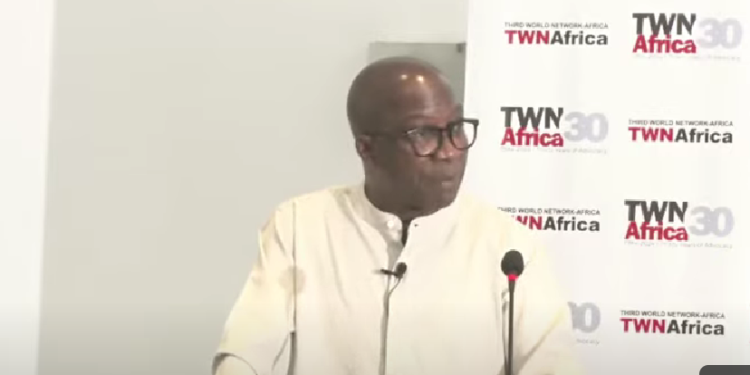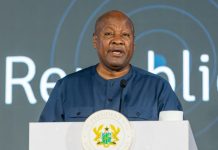Dr. Yao Graham, Coordinator of the Third World Network-Africa (TWN-Africa), has highlighted the economic challenges faced by African nations, attributing part of the continent’s downturn to the collapse of the mining economy in the 1980s.

Speaking at the TWN-Africa@30 event on the theme “Organising for Equitable and Transformative Policies” on Tuesday, November 26, Dr. Graham reflected on Ghana’s leadership in reshaping mining policies during that period.
He acknowledged Ghana’s pioneering role in reforming mining laws, especially through liberalization efforts that were seen as a model for other African nations.
However, Dr. Graham expressed disappointment that these reforms did not produce the expected socio-economic benefits. He noted that while Ghana became a leader in mining policy reform, the anticipated outcomes failed to materialize.
Instead of fostering broad-based economic development, the country faced challenges such as rapid privatization and the unregulated granting of mining concessions to foreign entities, which hindered long-term economic gains.
“The collapse of the mineral economy from the 1980s was a key factor in Africa’s economic decline and in Ghana, in 1980, the Hilla Limann’s government took a decision to try to revive the gold industry and when the PNDC came to power and became a champion of structural policies, Ghana was a pioneer in the liberalisation of the mining sector in Africa with the passage in 1986, of a law which opened up the space for foreign investors and proceeded to legalise artisanal and small-scale mining.”
Dr. Graham further critiqued the celebratory narrative surrounding the inflow of foreign direct investments and the promise of export-generated revenue. He noted that such propaganda often overshadowed the complex realities of the mining sector’s impact on the local economy and communities.
“Since the first wave of privatisation and granting of new concessions to new transnational corporations, official propaganda has focused on celebrating the amount of foreign direct investments coming into the country and the prospect of earning foreign exchange from exports. Today, Ghanaians have a more sophisticated cost-benefit analysis of the role and contribution of mining.”






















































![[FREE FREE MONEY] Predict and Win a Guaranteed GH¢200 From Us EVERY WEEK](https://wordpress.ghanatalksradio.com/wp-content/uploads/2022/02/Predict-and-Win-Final-09-03-2021-218x150.jpg)
![[Predict & Win – 8th/Oct.] WIN A Guaranteed ¢200 From Us This Week](https://wordpress.ghanatalksradio.com/wp-content/uploads/2021/10/maxresdefault-16-218x150.jpg)
![[Predict & Win – 2nd] WIN A Guaranteed ¢200 From Us This Week](https://wordpress.ghanatalksradio.com/wp-content/uploads/2021/09/maxresdefault-50-218x150.jpg)
![[Predict & Win – 25th] WIN A Guaranteed ¢200 From Us This Week](https://wordpress.ghanatalksradio.com/wp-content/uploads/2021/09/maxresdefault-36-218x150.jpg)
![[Predict & Win – 18th] WIN A Guaranteed ¢200 From Us This Week](https://wordpress.ghanatalksradio.com/wp-content/uploads/2021/09/maxresdefault-23-218x150.jpg)









![[National cathedral] See full list of churches that have contributed since 2018](https://wordpress.ghanatalksradio.com/wp-content/uploads/2020/09/Ghana-National-Cathedral-GhanaTalksRadio-100x70.jpg)



